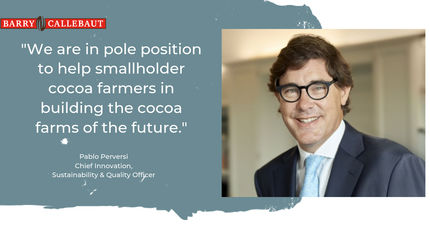WWF: EU not feeding the world, eating the world
The European Union imports more food than it exports to the detriment of the environment, a new report by the environmental protection organization WWF has found. "The EU consumes more than its fair share and our current high levels of food production are only possible thanks to massive imports of resources," WWF said as it presented a new report.
The EU was reaping billions from the global agrifood trade but the surplus hid many "uncomfortable truths," lead author Jabier Ruiz said.
"Rather than the world's granary, the EU is in fact the world's high-end grocery store, exporting products aimed primarily at wealthier consumers, and our high levels of production are achieved through unsustainable inputs, imports and wasteful land use," he said.
"The EU grocery store is running up a social and environmental bill so high, we are practically eating the world." The report found many of the EU's food imports and domestic production were fundamentally unsustainable, as they erode natural resources, drive global deforestation and deplete fish stocks.
As much as 40% of the food produced in the EU is also never eaten, while EU remains the second-largest importer of products linked to tropical deforestation. The report found consumers were keen for change; three out of five Europeans want to eat more sustainably and three out of four want EU legislation to ensure that all products sold in the EU do not lead to biodiversity loss.
The European Commission could no longer shy away from taking decisive action to address the environmental and social impacts of our food consumption, Ruiz said. "Now is the time to tackle the deep-rooted problems at the core of how we produce and consume food."
Most read news
Topics
Organizations
Other news from the department business & finance

Get the food & beverage industry in your inbox
By submitting this form you agree that LUMITOS AG will send you the newsletter(s) selected above by email. Your data will not be passed on to third parties. Your data will be stored and processed in accordance with our data protection regulations. LUMITOS may contact you by email for the purpose of advertising or market and opinion surveys. You can revoke your consent at any time without giving reasons to LUMITOS AG, Ernst-Augustin-Str. 2, 12489 Berlin, Germany or by e-mail at revoke@lumitos.com with effect for the future. In addition, each email contains a link to unsubscribe from the corresponding newsletter.



























































